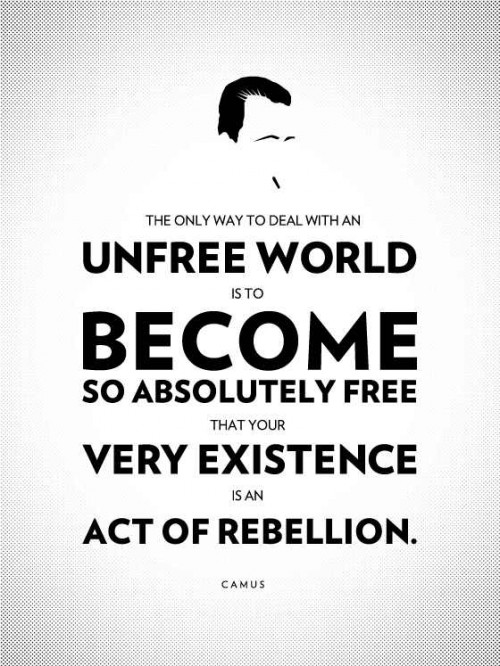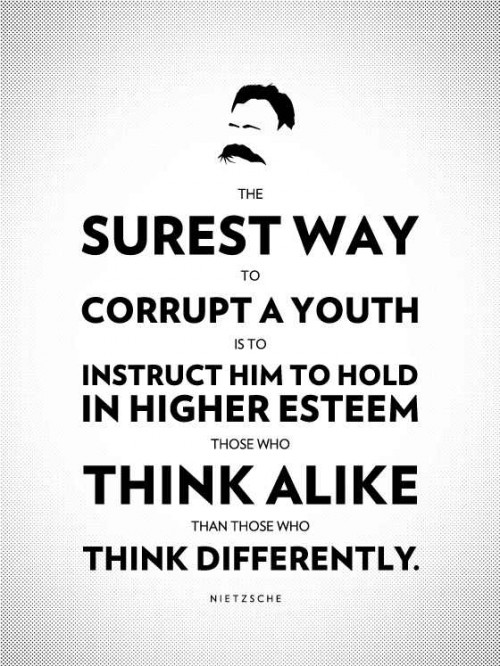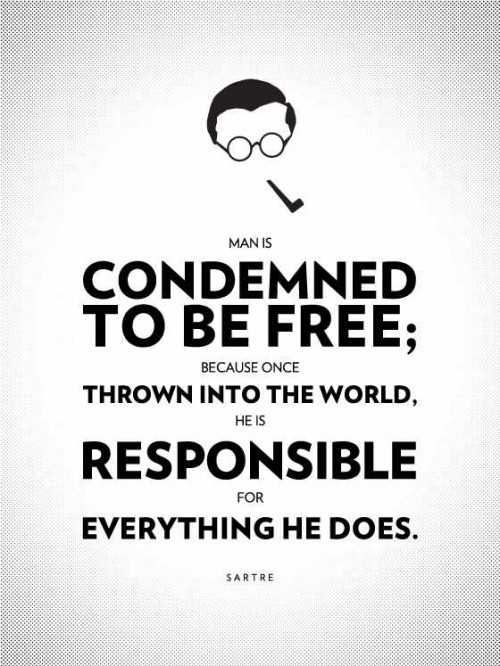Philosophy doesn’t always work well in pictures, or at least the great quotes by philosophers. How does one capture an idea, after all? Max Temkin, the artist, wanted to create posters with quotes thatmotivated people to think ‘different‘, and did it quite well.
Albert Camus
A french writer, journalist and philosopher that lived between 1913 and 1960. His views on the world contributed to the rise of absurdism. He won the Nobel Prize in 1957 for his Literature works “for his important literary production, which with clear-sighted earnestness illuminates the problems of the human conscience in our times”.
Simone de Beauvoir
Siomone de Beauvoir (1908-1986) was a French writer, existentialist philosopher, public intellectual, political activist, feminist theorist and social theorist, although she never considered herself as a philosopher. She still managed to have a great influence on feminist existentialism, and feminist theory.
Georg Wilhelm Friedrich Hegel
Hegel lived between 1770 and 1830 and was one of the main contributes to German Idealism. Hegel developed a comprehensive philosophical system to account in an integrated and developmental way for the relation of mind and nature, the subject and object of knowledge, psychology, the state, history, art, religionand philosophy.
Friedrich Nietzsche
Nietzsche lived between 1844 and 1900 and the most central aspect of his philosophy was the idea of “life-affirmation”, which involves questioning of all doctrines that drain life’s expansive energies, however socially prevalent and radical those views might be and the radical questioning of the value and objectivity of truth.
Jean-Paul Sartre
One of the key figures of the 20th century in French Philosophy and Marxism, Sartre won the 1964 Noble prize for Literature and refused it, saying that he always declined official honors and that “a writer should not allow himself to be turned into an institution.”
Arthur Schopenhauer
A German philosopher who lived between 1788 and 1860, Schopenhauer was mostly known for his book The World as Will and Representation, claiming that our world is driven by a continually dissatisfied will, continually seeking satisfaction.
Slavoj Zizek
Born in 1949, the Slovenian Zizek, as self-proclaimed communist and anti-capitalist is considered to be the strongest voice in Europe of the ‘young’ intellectuals, contributing through his works of political and film theory, mostly referring to the global financial crisis by referencing pop culture.
For more on Temkin’s work, go here.

















